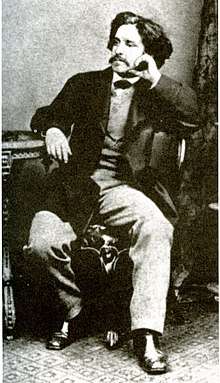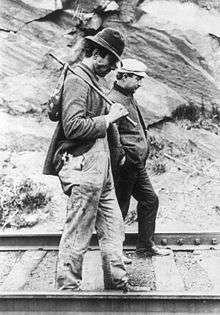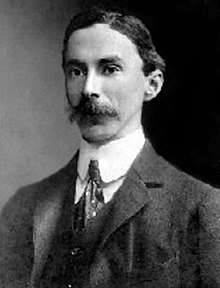Refusal of work
Refusal of work is behavior in which a person refuses regular employment.[1]
As actual behavior, with or without a political or philosophical program, it has been practiced by various subcultures and individuals. Radical political positions have openly advocated refusal of work. From within Marxism it has been advocated by Paul Lafargue and the Italian workerist/autonomists (e.g. Antonio Negri, Mario Tronti),[1] the French ultra-left (e.g. Échanges et Mouvement); and within anarchism (especially Bob Black and the post-left anarchy tendency).[2]
Abolition of unfree labour
International human rights law does not recognize the refusal of work or right not to work by itself except the right to strike. However the Abolition of Forced Labour Convention adopted by International Labour Organization in 1957 prohibits all forms of forced labour.[3]
Concerns over wage slavery
Wage slavery refers to a situation where a person's livelihood depends on wages, especially when the dependence is total and immediate.[4][5] It is a negatively connoted term used to draw an analogy between slavery and wage labor, and to highlight similarities between owning and employing a person. The term 'wage slavery' has been used to criticize economic exploitation and social stratification, with the former seen primarily as unequal bargaining power between labor and capital (particularly when workers are paid comparatively low wages, e.g. in sweatshops),[6] and the latter as a lack of workers' self-management.[7][9] The criticism of social stratification covers a wider range of employment choices bound by the pressures of a hierarchical social environment (i.e. working for a wage not only under threat of starvation or poverty, but also of social stigma or status diminution).[10][11][12]
Similarities between wage labor and slavery were noted at least as early as Cicero.[13] Before the American Civil War, Southern defenders of African American slavery invoked the concept to favorably compare the condition of their slaves to workers in the North.[14][15] With the advent of the industrial revolution, thinkers such as Proudhon and Marx elaborated the comparison between wage labor and slavery in the context of a critique of property not intended for active personal use.[16][17]
The introduction of wage labor in 18th century Britain was met with resistance – giving rise to the principles of syndicalism.[18][19][20][21] Historically, some labor organizations and individual social activists, have espoused workers' self-management or worker cooperatives as possible alternatives to wage labor.[8][20]
Political views
Marxism

Paul Lafargue and The Right to be Lazy
The Right to be Lazy is an essay by Cuban-born French revolutionary Marxist Paul Lafargue, written from his London exile in 1880. The essay polemicizes heavily against then-contemporary liberal, conservative, Christian and even socialist ideas of work. Lafargue criticizes these ideas from a Marxist perspective as dogmatic and ultimately false by portraying the degeneration and enslavement of human existence when being subsumed under the primacy of the "right to work", and argues that laziness, combined with human creativity, is an important source of human progress.
He manifests that "When, in our civilized Europe, we would find a trace of the native beauty of man, we must go seek it in the nations where economic prejudices have not yet uprooted the hatred of work ... The Greeks in their era of greatness had only contempt for work: their slaves alone were permitted to labor: the free man knew only exercises for the body and mind ... The philosophers of antiquity taught contempt for work, that degradation of the free man, the poets sang of idleness, that gift from the Gods."[22] And so he says "Proletarians, brutalized by the dogma of work, listen to the voice of these philosophers, which has been concealed from you with jealous care: A citizen who gives his labor for money degrades himself to the rank of slaves." (The last sentence paraphrasing Cicero.[13])
Situationist International
Raoul Vaneigem, important theorist of the post-surrealist Situationist International which was influential in the May 68 events in France, wrote The Book of Pleasures. In it he says that "You reverse the perspective of power by returning to pleasure the energies stolen by work and constraint ... As sure as work kills pleasure, pleasure kills work. If you are not resigned to dying of disgust, then you will be happy enough to rid your life of the odious need to work, to give orders (and obey them), to lose and to win, to keep up appearances, and to judge and be judged."[23]
Autonomism
Autonomist philosopher Bifo defines refusal of work as not "so much the obvious fact that workers do not like to be exploited, but something more. It means that the capitalist restructuring, the technological change, and the general transformation of social institutions are produced by the daily action of withdrawal from exploitation, of rejection of the obligation to produce surplus value, and to increase the value of capital, reducing the value of life."[1] More simply he states "Refusal of work means ... I don't want to go to work because I prefer to sleep. But this laziness is the source of intelligence, of technology, of progress. Autonomy is the self-regulation of the social body in its independence and in its interaction with the disciplinary norm."[1]
As a social development Bifo remembers "that one of the strong ideas of the movement of autonomy proletarians during the 70s was the idea "precariousness is good". Job precariousness is a form of autonomy from steady regular work, lasting an entire life. In the 1970s many people used to work for a few months, then to go away for a journey, then back to work for a while. This was possible in times of almost full employment and in times of egalitarian culture. This situation allowed people to work in their own interest and not in the interest of capitalists, but quite obviously this could not last forever, and the neoliberal offensive of the 1980s was aimed to reverse the rapport de force."[1] As a response to these developments his view is that "the dissemination of self-organized knowledge can create a social framework containing infinite autonomous and self-reliant worlds."[1]
From this possibility of self-determination even the notion of workers' self-management is seen as problematic since "Far from the emergence of proletarian power, ... this self-management as a moment of the self-harnessing of the workers to capitalist production in the period of real subsumption ... Mistaking the individual capitalist (who, in real subsumption disappears into the collective body of share ownership on one side, and hired management on the other) rather than the enterprise as the problem, ... the workers themselves became a collective capitalist, taking on responsibility for the exploitation of their own labor. Thus, far from breaking with 'work', ... the workers maintained the practice of clocking-in, continued to organize themselves and the community around the needs of the factory, paid themselves from profits arising from the sale of watches, maintained determined relations between individual work done and wage, and continued to wear their work shirts throughout the process."[24]
André Gorz
André Gorz was an Austrian and French social philosopher. Also a journalist, he co-founded Le Nouvel Observateur weekly in 1964. A supporter of Jean-Paul Sartre's existentialist version of Marxism after World War Two, in the aftermath of the May '68 student riots, he became more concerned with political ecology. His central theme was wage labour issues such as liberation from work, the just distribution of work, social alienation, and a guaranteed basic income.[25] Among his works critical of work and the work ethic include Critique de la division du travail (Seuil, 1973. Collective work), Farewell to the Working Class (1980 – Galilée and Le Seuil, 1983, Adieux au Prolétariat), Critique of Economic Reason (Verso, 1989 first published 1988) and Reclaiming Work: Beyond the Wage-Based Society (1999).
Anarchism
The Abolition of Work
| Part of the Politics series on |
| Anarchism |
|---|
 |
|
|
|
|
|
|
Culture
|
|
|
|
The Abolition of Work, Bob Black's most widely read essay, draws upon the ideas of Charles Fourier, William Morris, Herbert Marcuse, Paul Goodman, and Marshall Sahlins. In it he argues for the abolition of the producer- and consumer-based society, where, Black contends, all of life is devoted to the production and consumption of commodities. Attacking Marxist state socialism as much as market capitalism, Black argues that the only way for humans to be free is to reclaim their time from jobs and employment, instead turning necessary subsistence tasks into free play done voluntarily – an approach referred to as "ludic". The essay argues that "no-one should ever work", because work – defined as compulsory productive activity enforced by economic or political means – is the source of most of the misery in the world. Black denounces work for its compulsion, and for the forms it takes – as subordination to a boss, as a "job" which turns a potentially enjoyable task into a meaningless chore, for the degradation imposed by systems of work-discipline, and for the large number of work-related deaths and injuries – which Black typifies as "homicide". He views the subordination enacted in workplaces as "a mockery of freedom", and denounces as hypocrites the various theorists who support freedom while supporting work. Subordination in work, Black alleges, makes people stupid and creates fear of freedom. Because of work, people become accustomed to rigidity and regularity, and do not have the time for friendship or meaningful activity. Most workers, he states, are dissatisfied with work (as evidenced by petty deviance on the job), so that what he says should be uncontroversial; however, it is controversial only because people are too close to the work-system to see its flaws.
Play, in contrast, is not necessarily rule-governed, and is performed voluntarily, in complete freedom, as a gift economy. He points out that hunter-gatherer societies are typified by play, a view he backs up with the work of Marshall Sahlins; he recounts the rise of hierarchal societies, through which work is cumulatively imposed, so that the compulsive work of today would seem incomprehensibly oppressive even to ancients and medieval peasants. He responds to the view that "work," if not simply effort or energy, is necessary to get important but unpleasant tasks done, by claiming that first of all, most important tasks can be rendered ludic, or "salvaged" by being turned into game-like and craft-like activities, and secondly that the vast majority of work does not need doing at all. The latter tasks are unnecessary because they only serve functions of commerce and social control that exist only to maintain the work-system as a whole. As for what is left, he advocates Charles Fourier's approach of arranging activities so that people will want to do them. He is also skeptical but open-minded about the possibility of eliminating work through labor-saving technologies. He feels the left cannot go far enough in its critiques because of its attachment to building its power on the category of workers, which requires a valorization of work.
Anti-work
The anti-work ethic states that labor tends to cause unhappiness, therefore, the quantity of labor ought to be lessened, and/or that work should not be enforced by economic or political means. The ethic appeared in anarchist circles and have come to prominence with essays such as In Praise of Idleness and Other Essays by Bertrand Russell, The Right to Useful Unemployment by Ivan Illich, and The Abolition of Work by Bob Black,[26] published in 1985.
Friedrich Nietzsche was a notable philosopher who presented a critique of work and an anti-work ethic. In 1881, he wrote:
The eulogists of work. Behind the glorification of 'work' and the tireless talk of the 'blessings of work' I find the same thought as behind the praise of impersonal activity for the public benefit: the fear of everything individual. At bottom, one now feels when confronted with work – and what is invariably meant is relentless industry from early till late – that such work is the best police, that it keeps everybody in harness and powerfully obstructs the development of reason, of covetousness, of the desire for independence. For it uses up a tremendous amount of nervous energy and takes it away from reflection, brooding, dreaming, worry, love, and hatred; it always sets a small goal before one's eyes and permits easy and regular satisfactions. In that way a society in which the members continually work hard will have more security: and security is now adored as the supreme goddess..."
— Friedrich Nietzsche, The Dawn, p. 173
The American architect, designer and futurist Buckminster Fuller presented an argument that rejected the notion of it being a necessity for people to be in employment to earn a living, saying:
"We should do away with the absolutely specious notion that everybody has to earn a living. It is a fact today that one in ten thousand of us can make a technological breakthrough capable of supporting all the rest. The youth of today are absolutely right in recognizing this nonsense of earning a living. We keep inventing jobs because of this false idea that everybody has to be employed at some kind of drudgery because, according to Malthusian Darwinian theory he must justify his right to exist. So we have inspectors of inspectors and people making instruments for inspectors to inspect inspectors. The true business of people should be to go back to school and think about whatever it was they were thinking about before somebody came along and told them they had to earn a living."
— Richard Buckminster Fuller, [27]
The Idler
The Idler is a bi-monthly British magazine devoted to promoting its ethos of "idle living" and all that entails. It was founded in 1993 by Tom Hodgkinson and Gavin Pretor-Pinney with the intention of exploring alternative ways of working and living.[28]
Refusal of work in practice
"Slackers"
The term slacker is commonly used to refer to a person who avoids work (especially British English), or (primarily in North American English) an educated person who is viewed as an underachiever.[29][30]
While use of the term slacker dates back to about 1790 or 1898 depending on the source, it gained some recognition during the British Gezira Scheme, when Sudanese labourers protested their relative powerlessness by working lethargically, a form of protest known as 'slacking'.[31] The term achieved a boost in popularity after its use in the films Back to the Future by Robert Zemeckis and Richard Linklater's Slacker.[29][32]
NEET
NEET is an acronym for the government classification for people currently "Not in Employment, Education or Training". It was first used in the United Kingdom but its use has spread to other countries, including Japan, China, and South Korea.
In the United Kingdom, the classification comprises people aged between 16 and 24 (some 16-year-olds are still of compulsory school age). In Japan, the classification comprises people aged between 15 and 34 who are unemployed, unmarried, not enrolled in school or engaged in housework, and not seeking work or the technical training needed for work. The "NEET group" is not a uniform set of individuals but consists of those who will be NEET for a short time while essentially testing out a variety of opportunities and those who have major and often multiple issues and are at long term risk of remaining disengaged.
In Brazil, "nem-nem" (short of nem estudam nem trabalham (neither working nor studying) is a term with similar meaning.[33]
In Mexico, "Ni-Ni" (short of Ni estudia Ni trabaja) is also applied.
"Freeters" and parasite singles
Freeter (フリーター, furītā) (other spellings below) is a Japanese expression for people between the age of 15 and 34 who lack full-time employment or are unemployed, excluding homemakers and students. They may also be described as underemployed or freelance workers. These people do not start a career after high school or university but instead usually live as so-called parasite singles with their parents and earn some money with low skilled and low paid jobs.
The word freeter or freeta was first used around 1987 or 1988 and is thought to be an amalgamation of the English word free (or perhaps freelance) and the German word Arbeiter ("worker").[34]
Parasite single (パラサイトシングル, parasaito shinguru) is a Japanese term for a single person who lives with their parents until their late twenties or early thirties in order to enjoy a carefree and comfortable life. In English, the expression "sponge" or "basement dweller" may sometimes be used.
The expression is mainly used in reference to Japanese society, but similar phenomena can also be found in other countries worldwide. In Italy, 30-something singles still relying on their mothers are joked about, being called Bamboccioni (literally: grown-up babies) and in Germany they are known as Nesthocker (German for an altricial bird), who are still living at Hotel Mama.
Such behaviour is considered normal in Greece, both because of the traditional strong family ties and because of the low wages.[35]
Vagrancy
A vagrant is a person in a situation of poverty, who wanders from place to place without a home or regular employment or income. Many towns in the developed world have shelters for vagrants. Common terminology is a tramp or a 'gentleman of the road'.
Laws against vagrancy in the United States have partly been invalidated as violative of the due process clauses of the U.S. Constitution.[36] However, the FBI report on crime in the United States for 2005 lists 24,359 vagrancy violations.[37]
Cynic philosophical school

Cynicism (Greek: κυνισμός), in its original form, refers to the beliefs of an ancient school of Greek philosophers known as the Cynics (Greek: Κυνικοί, Latin: Cynici). Their philosophy was that the purpose of life was to live a life of Virtue in agreement with Nature. This meant rejecting all conventional desires for wealth, power, health, and fame, and by living a simple life free from all possessions. They believed that the world belonged equally to everyone, and that suffering was caused by false judgments of what was valuable and by the worthless customs and conventions which surrounded society.
The first philosopher to outline these themes was Antisthenes, who had been a pupil of Socrates in the late 5th century BCE. He was followed by Diogenes of Sinope, who lived in a tub on the streets of Athens. Diogenes took Cynicism to its logical extremes, and came to be seen as the archetypal Cynic philosopher. He was followed by Crates of Thebes who gave away a large fortune so he could live a life of Cynic poverty in Athens. Cynicism spread with the rise of Imperial Rome in the 1st century, and Cynics could be found begging and preaching throughout the cities of the Empire. It finally disappeared in the late 5th century, although many of its ascetic and rhetorical ideas were adopted by early Christianity. The name Cynic derives from the Greek word κυνικός, kynikos, "dog-like" and that from κύων, kyôn, "dog" (genitive: kynos).[38]
It seems certain that the word dog was also thrown at the first Cynics as an insult for their shameless rejection of conventional manners, and their decision to live on the streets. Diogenes, in particular, was referred to as the Dog.[39]
Sadhus

In Hinduism, sadhu is a common term for a mystic, an ascetic, practitioner of yoga (yogi) and/or wandering monks. The sadhu is solely dedicated to achieving the fourth and final Hindu goal of life, moksha (liberation), through meditation and contemplation of Brahman. Sadhus often wear ochre-colored clothing, symbolizing renunciation.
"Hobos", "tramps", and "bums"
A hobo is a migratory worker or homeless vagabond, often penniless.[40] The term originated in the western—probably northwestern—United States during the last decade of the 19th century.[41] Unlike tramps, who worked only when they were forced to, and bums, who did not work at all, hobos were workers who wandered.[41][42]
In British English and traditional American English usage, a tramp is a long term homeless person who travels from place to place as an itinerant vagrant, traditionally walking or hiking all year round.

While some tramps may do odd jobs from time to time, unlike other temporarily homeless people they do not seek out regular work and support themselves by other means such as begging or scavenging. This is in contrast to:
- bum, a stationary homeless person who does not work, and who begs or steals for a living in one place.
- hobo, a homeless person who travels from place to place looking for work, often by "freighthopping", illegally catching rides on freight trains
- Schnorrer, a Yiddish term for a person who travels from city to city begging.
Both terms, "tramp" and "hobo" (and the distinction between them), were in common use between the 1880s and the 1940s. Their populations and the usage of the terms increased during the Great Depression.
Like "hobo" and "bum," the word "tramp" is considered vulgar in American English usage, having been subsumed in more polite contexts by words such as "homeless person" or "vagrant." In colloquial American English, the word "tramp" can also mean a sexually promiscuous female or even prostitute.
Tramps used to be known euphemistically in England and Wales as "gentlemen of the road."
Tramp is derived from the Middle English as a verb meaning to "walk with heavy footsteps", and to go hiking.[43] Bart Kennedy, a self-described tramp of 1900 US, once said "I listen to the tramp, tramp of my feet, and wonder where I was going, and why I was going."[44]
"Gutter punks"
A gutter punk is a homeless or transient individual, often through means of freighthopping or hitchhiking. Gutter punks are often juveniles who are in some way associated with the anarcho-punk subculture.[45] In certain regions, gutter punks are notorious for panhandling and often display cardboard signs that make statements about their lifestyles.[45] Gutter punks are generally characterized as being voluntarily unemployed.[45]
"Work-shy"
In Nazi Germany, so-called "work-shy" individuals were rounded up and imprisoned in Nazi concentration camps as black triangle prisoners.[46][47]
See also
- Automation
- Basic Income
- Counterculture
- Decent work
- "From each according to his ability, to each according to his need"
- "He who does not work, neither shall he eat"
- Money-rich, time-poor
- Post-work society
- Unfree labour
- Work–life balance
References
- "Refusal of work means quite simply:I don't want to go to work because I prefer to sleep. But this laziness is the source of intelligence, of technology, of progress. Autonomy is the self-regulation of the social body in its independence and in its interaction with the disciplinary norm.""What is the Meaning of Autonomy Today?" by Bifo
- The entire text of Bob Black's 1986 collection The Abolition of Work and Other Essays at Inspiracy
- Abolition of Forced Labour Convention(No.105), Article 1
- "Definition of WAGE SLAVE". www.merriam-webster.com.
- "the definition of wage slave". www.dictionary.com.
- Sandel, Michael J. (2 January 1998). Democracy's Discontent: America in Search of a Public Philosophy. Harvard University Press. ISBN 9780674197459 – via Google Books.
- "Conversation with Noam Chomsky, p. 2 of 5". Globetrotter.berkeley.edu. Retrieved 2010-06-28.
- "The Bolsheviks and Workers Control". www.spunk.org.
- Full text of Cannibals All! Or, Slaves Without Masters, by George Fitzhugh (1857)
- Robert Schalkenbach Foundation Archived 2012-07-16 at the Wayback Machine
- "Conversation with Noam Chomsky, p. 2 of 5". globetrotter.berkeley.edu.
- "...vulgar are the means of livelihood of all hired workmen whom we pay for mere manual labor, not for artistic skill; for in their case the very wage they receive is a pledge of their slavery." - De Officiis
- Foner, Eric. Free Soil, Free Labor, Free Men. p. xix.
- Jensen, Derrick (2002). The Culture of Make Believe.
- "Economic Manuscripts: Theories of Surplus-Value, Chapter 7". www.marxists.org.
- "Proudhon, Pierre Joseph. What is Property? An Inquiry into the Principle of Right and of Government".
- [The Making of the English Working Class, p. 599]
- [The Making of the English Working Class, p. 912]
- [Geoffrey Ostergaard, The Tradition of Workers' Control, p. 133]
- [Competitive Advantage on the Shop Floor, p. 37]
- Paul Lafargue. The Right To Be Lazy
- The book of pleasures by Raoul Vaneigem
- "5. The Refusal of Work". libcom.org.
- André Gorz, Pour un revenu inconditionnel suffisant, published in Transversales/Science-Culture (n° 3, 3e trimestre 2002) (in French)
- "THE ABOLITION OF WORK by Bob Black". www.zpub.com.
- R. Buckminster Fuller > Quotes > Quotable Quote. Goodreads. Retrieved 24 January 2019.
- "Idler About".
- "slacker". Random House, Inc. 2006.
- Compact Oxford English Dictionary. "slacker".
- Bernal, V. (1997). "Colonial Moral Economy and the Discipline of Development: The Gezira Scheme and "Modern" Sudan". Cultural Anthropology. 12 (4): 447–79. doi:10.1525/can.1997.12.4.447.
- "Online Etymology Dictionary, slack (adj.)". Douglas Harper.
- "Dois em cada dez jovens brasileiros nem estudam e nem trabalham". Fantástico. 27 July 2014.
- "A Way with Words - freeter". www.waywordradio.org.
- "ΤΑ ΝΕΑ". ΤΑ ΝΕΑ.
- "Vagrancy - LII / Legal Information Institute".
- Table 43 – Crime in the United States 2005 http://www.fbi.gov/ucr/05cius/data/table_43.html
- "No document found". www.perseus.tufts.edu.
- An obscure reference to "the Dog" in Aristotle's Rhetoric (3.10.1411a25) is generally agreed to be the first reference to Diogenes.
- Definition of 'hobo' from the Merriam-Webster website
- "On Hobos, Hautboys, and Other Beaus". OUPblog. Oxford University Press. November 12, 2008. Retrieved 2009-08-05.
- Mencken, Henry Louis (1945). "American Slang". The American Language: An Inquiry Into the Development of English in the United States. A.A. Knopf. p. 581. ISBN 978-0-394-40075-4.
- See Wiktionary.
- Bart Kennedy, A Man Adrift, p.161, Chicago, H.S. Stone, 1900.
- John M. Glionna, There's not a lot of love in the Haight, Los Angeles Times, May 29, 2007.
- Gellately, Robert; Stoltzfus, Nathan (2001). Social Outsiders in Nazi Germany. Princeton University Press. p. 12. ISBN 978-0-691-08684-2.
- Schulle, Diana (2009). Meyer, Beate; Simon, Hermann; Schütz, Chana (eds.). Jews in Nazi Berlin: From Kristallnacht to Liberation. University of Chicago Press. p. 146. ISBN 978-0-226-52159-6.
External links
| Wikiquote has quotations related to: Refusal of work |

